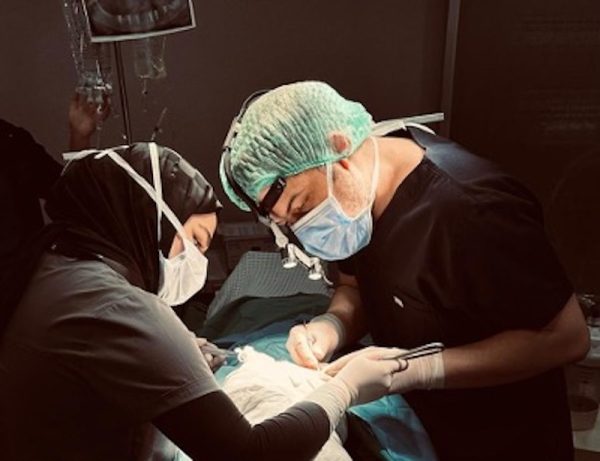The Post-Crisis Crisis: Rick Inatome on Managing Learning Loss after Covid
Branded Content by Cosmic Press
The Covid-19 pandemic officially ended earlier this year, but its consequences persist as significant societal challenges. Rick Inatome, who has significant background in developing processes and programs for improving academic outcomes, says “school closures during the pandemic, albeit well-intended, have had a dire generational impact on student achievement.”
He references numerous studies indicating significant learning losses due to the education disruption. Included is a Stanford University report showing that ~25% of students, even with five extra years of education, would not achieve the benchmarks of average knowledge in math and reading by the end of their senior year in high school.
For those who do not learn as quickly as the average student, and for students of historically disadvantaged groups, the deficit is greater.

Inatome says the magnitude of the crisis has a silver lining insofar as “it creates an opportunity to rethink and improve how education is packaged and delivered in the United States.” In this regard, he notes that even some of the most basic premises of education can be revisited.
Inatome observes, for instance, “it is well known that individuals learn at different paces. Yet, there has been a fixation on the same ‘seat time’ for everyone” rather than experimentation with or adoption of mastery-based learning.
In the workplace, Inatome observes, “thoughtful organizations in the workplace have come to the realization that frequent feedback is a key enabler of personal growth and development.
Yet student evaluations typically are reduced to a quarterly or semi-annual letter grade.” He cites his own experience in developing 360 evaluations as evidence that “assessments can be conducted with greater breadth and depth, in a time efficient manner, and in a way that is both constructive and actionable.”
Inatome credits school leaders with rapid recognition of the learning deficit issue and, in many instances, readiness to implement remedial measures. Recent research indicates that the impact of some of the earliest adoptions — such as extended hours, high dose tutoring, and summer catch up sessions – are at least subject to debate.
For effective and long-term solutions to be identified and implemented, Inatome asserts that “schools must embrace the processes of innovation that the pandemic forced upon them.”
In the eyes of some, technology has been part of the problem with respect to learning loss. Remote class sessions — devolving into boredom, distraction, and disengagement –highlighted school unpreparedness, inadequate training, technical knowhow deficits, accessibility, and resistance.
Inatome observes that these problems should not obscure the fact that the online experience, by providing an unfiltered lens for parents to observe the classroom dynamic, has heralded the opportunity for “an enhanced parental-teacher-student triad that in effect can establish the foundation for a virtual education village.”
Inatome says the problems with remote learning in significant part “were self-created and, especially given the stakes, should not be excuses for reversion to comfort zones.” He adds that technology needs to be the ally rather than the foe, and that “closing the learning gap invariably will require fully embracing and harnessing not only new tools and methodologies but artificial intelligence.”
More to this point, Inatome emphasizes that the key to ultimate success hinges upon leadership that inspires and insists upon educational performance aligned with the relevant objectives and desired outcomes.
Since the onset of the pandemic, Congress has provided nearly $200 million in pandemic aid to K-12 schools. At least 20% of the funds must be spent on addressing learning setbacks. Inatome says these monies (more than four times what the United States Department of Education spends on K-12 schools in an average year) will be “well spent if they not only address learning loss but support a rethinking of educational goals, processes, and equity issues and solutions.”
He adds that “this outcome hinges upon innovation, change driven by leadership that inspires performance aligned with objectives and outcomes, and resisting the temptation to revert to the pre-existing status quo.”
About Rick Inatome
Rick Inatome is a transformative business leader whose legacy includes being an architect of the digital age.? Working with other pioneers such as Bill Gates and Steve Jobs, he established a disruptive technology distribution channel that introduced the personal computer first to the general public and then to corporate America.??Inatome is among a select group of tech giants in the Computer Hall of Fame and was named Entrepreneur of the Year by?Inc.?Magazine. ?He has founded and managed various private equity funds, served on numerous boards, and is in demand as a consultant, mentor, and public speaker.
Branded content furnished by our promotional partners. The Daily Sundial editorial staff is not involved in its production. Content does not reflect the views or opinions of the editorial staff.





